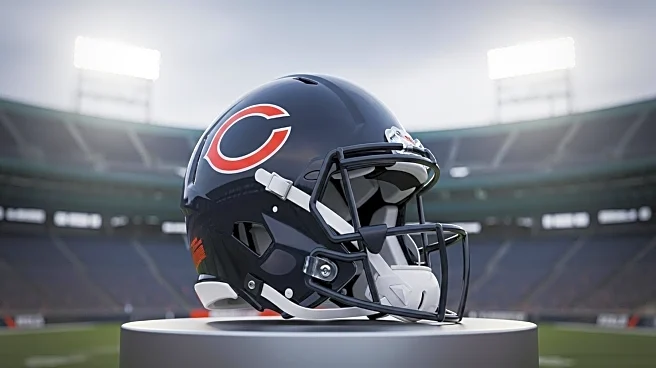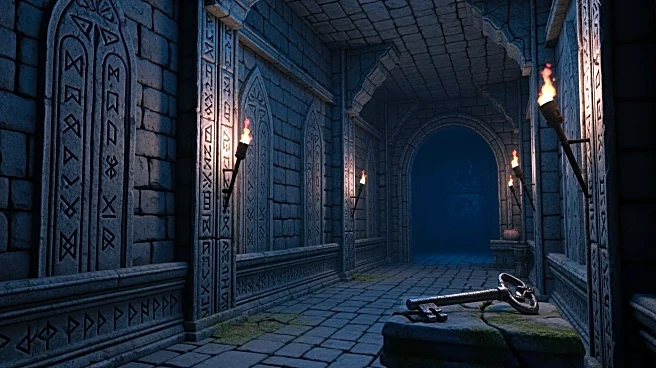What's Happening?
On September 19, 1971, the Chicago Bears played their first home game at Soldier Field, marking a significant transition from their previous venue at Wrigley Field. The game against the Pittsburgh Steelers was attended by over 55,000 fans, despite rainy conditions. The Bears managed a comeback victory, scoring two touchdowns in the final minutes to win 17-15. This move to Soldier Field was part of a broader effort to accommodate larger crowds and provide a more modern facility for the team and its supporters. The transition was a notable event in Chicago sports history, reflecting changes in venue preferences and fan engagement strategies.
Why It's Important?
The relocation of the Chicago Bears to Soldier Field was a pivotal moment for the team and its fan base, symbolizing growth and modernization in sports infrastructure. Soldier Field offered increased seating capacity and improved amenities, enhancing the game-day experience for fans. This move also aligned with broader trends in professional sports, where teams sought larger, more advanced venues to boost attendance and revenue. The decision impacted local businesses and the economy, as game days brought increased traffic and commerce to the area. It also set a precedent for other teams considering similar moves to enhance their facilities.
What's Next?
The transition to Soldier Field paved the way for future renovations and expansions, ensuring the venue remained competitive and appealing. Over the years, Soldier Field has undergone several upgrades to maintain its status as a premier sports venue. The Bears' move also influenced other teams to consider similar relocations or renovations to improve their facilities. As sports venues continue to evolve, teams may explore further enhancements to meet the changing expectations of fans and stakeholders, including technological advancements and sustainability initiatives.
Beyond the Headlines
The move to Soldier Field also had cultural implications, as it became a central hub for Chicago sports and community events. The venue's historical significance and iconic status have made it a landmark in the city, hosting not only football games but also concerts and other major events. This transition reflects broader societal shifts towards urban development and the role of sports in community identity. Soldier Field's legacy continues to influence discussions on urban planning and the integration of sports venues into city landscapes.










